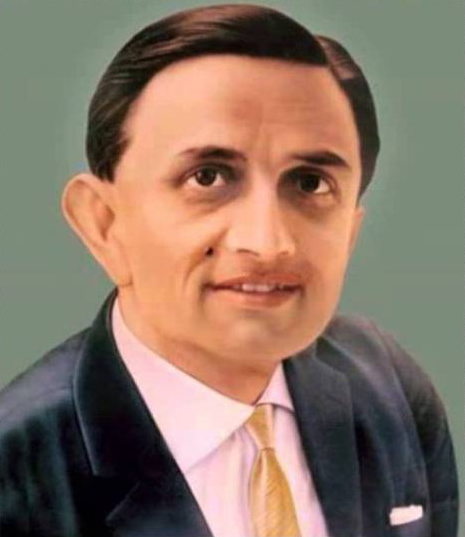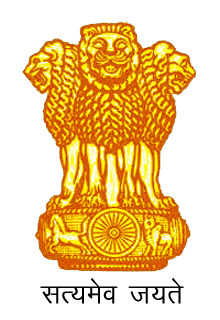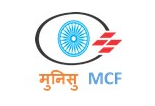
Vikram Ambalal Sarabhai was one of the greatest scientists of India. He is widely regarded as the father of the Indian space programme. In fact he was a rare combination of a scientist, an innovator, industrialist and a visionary.
Vikram Sarabhai was born on August 12, 1919 at Ahmedabad in an affluent family of progressive industrialists. He was one of the eight children of Ambalal and Sarla Devi. He had his early education in a private school, 'Retreat', run by his parents on Montessori lines. Some of the great personalities like Gurudev Rabindranath, J Krishna Murthi, Motilal Nehru, VS Shrinivasa Shastri, Jawaharlal Nehru, Sarojini Naidu, Maulana Azad, CF Andrews, C V Raman et al used to stay with the Sarabhai family when they visited Ahmedabad. Mahatma Gandhi also once stayed at their house while recovering from an illness. Visits by such great personalities greatly influenced Vikram Sarabhai.
After his matriculation, Vikram Sarabhai proceeded to Cambridge for his college education and took the tripos in Natural Sciences from St. John's College in 1940. With the beginning of World War II, he returned home and joined as a research scholar under Sir CV Raman at the Indian Institute of Science, Bangalore. His interest in solar physics and cosmic ray led him to set up many observation stations around the country. He built the necessary equipment and took measurements at Bangalore, Pune and the Himalayas. He returned to Cambridge in 1945 and completed his PhD in 1947.
Back home, he became instrumental in establishing the Physical Research Laboratory (PRL) in Ahmedabad in November 1947. The laboratory was established in a few rooms in the MG Science Institute of the Ahmedabad Education Society, which was founded by his parents. Subsequently, it got support from the Council of Scientific and Industrial Research (CSIR) and the Department of Atomic Energy.
The research that Vikram Sarabhai did on the time variations of cosmic rays concluded that meteorological effects could not entirely affect the observed daily variations of cosmic rays; Further, the residual variations were wide and global and these were related to variations in solar activity. Vikram Sarabhai visualised a new field of research opening up in solar and interplanetary physics.
The year 1957-1958 was designated as International Geo-physical year (IGY). The Indian programme for the IGY had been one of the most significant ventures of Sarabhai. This gave him exposure to new vistas of space science with the launching of Sputnik-I in 1957. Subsequently, the Indian National Committee for Space Research (INCOSPAR) was formed, under his chairmanship.
Knowing the unique feature of Thumba on account of its proximity to the geomagnetic equator, Vikram Sarabhai chose this fishing village near Thiruvananthapuram on the Arabian Coast to set up the Thumba Equatorial Rocket Launching station (TERLS), the first rocket launching station in the country. In this venture he got active support from Homi Bhabha, who was then the Chairman of the Atomic Energy Commission. The first rocket with sodium vapour payload was launched on November 21, 1963. In 1965, the UN General Assembly gave recognition to TERLS as an international facility.
After the sudden demise of Homi Bhabha in an air crash, Vikram Sarabhai took over as Chairman, Atomic Energy Commission in May 1966. He always longed that the practical application of science should reach the common man. He worked towards acquiring competence in advance technology for the solution of country's problems based on technical and economic evaluation of its real resources. He initiated India's space programme, which today is renowned all over the world.
Dr Vikram Sarabhai received the Shanti Swarup Bhatnagar Medal in 1962. The nation honoured him awarding Padma Bhushan in 1966 and Padma Vibhushan (posthumously) in 1972.
Vikram Sarabhai passed away in his sleep on December 31, 1971.


